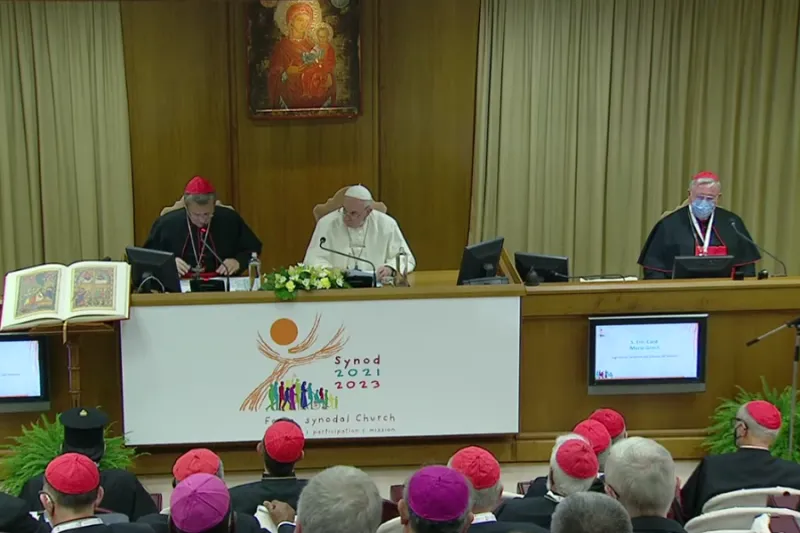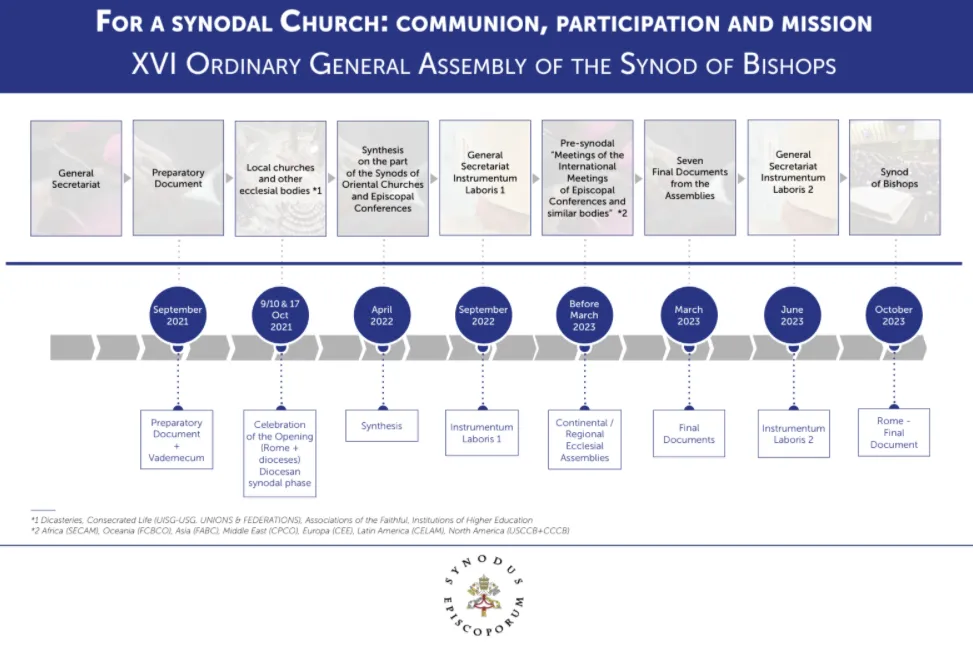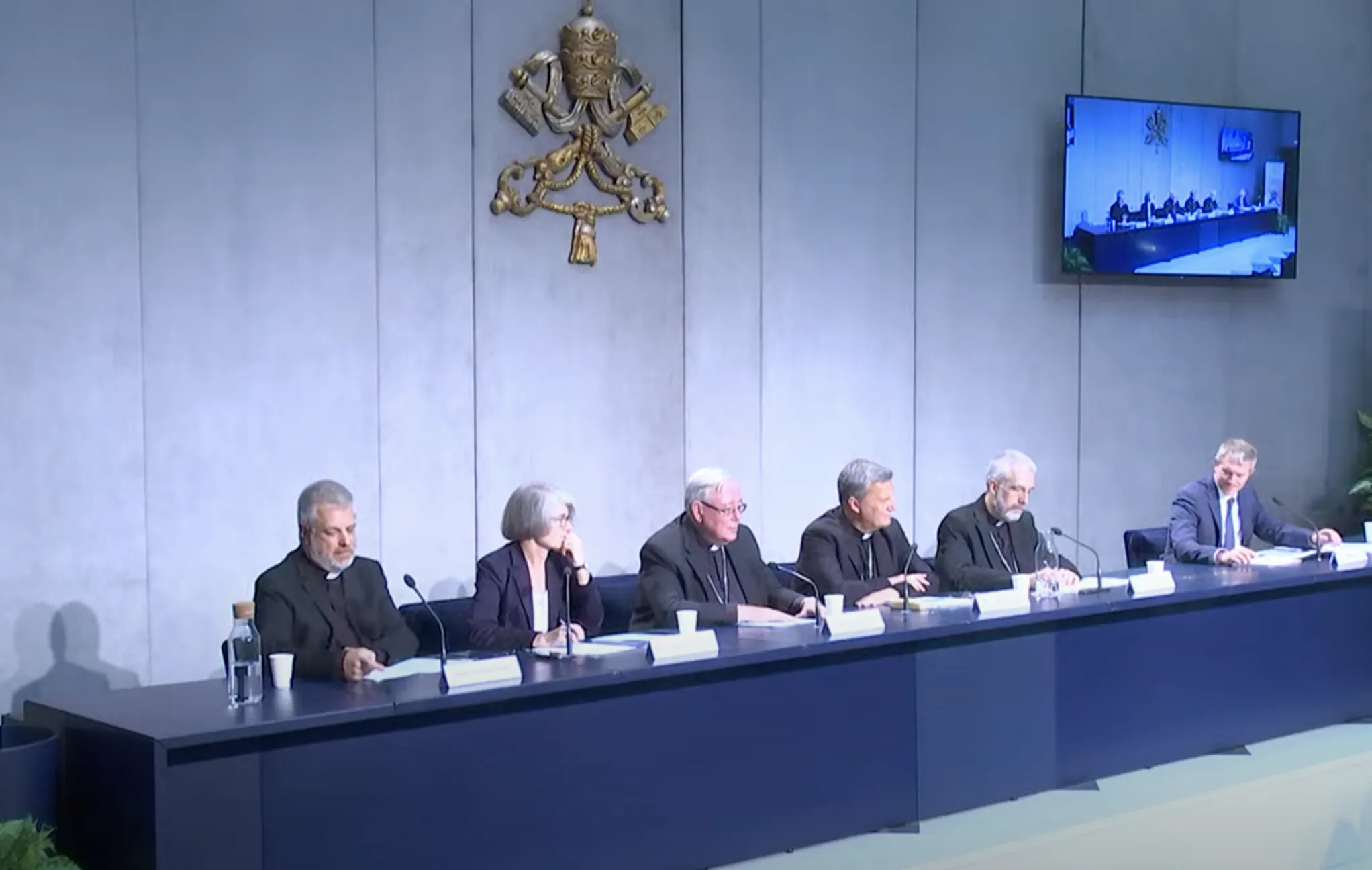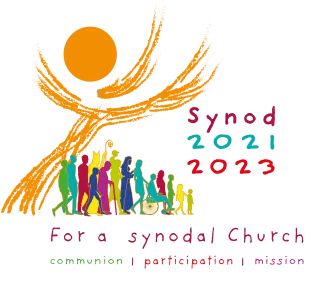
Rome Newsroom, Sep 8, 2022 / 04:56 am (CNA).
In late August, the leadership of the Synod of Bishops announced the next stage in the Catholic Church’s Synod on Synodality.
The continental phase follows the diocesan, in which bishops’ conferences collected the thoughts and reflections of Catholics in their countries through listening sessions and surveys.
One of the big tasks of the continental phase will be to create a new document summarizing the summaries sent to the Vatican by the bishops’ conferences, themselves summaries of the individual reports from Catholic dioceses.
According to the leadership of the Synod of Bishops, the working document corresponds to what in past synods was called an Instrumentum laboris and will be the first of two during the entire synodal process.

The purpose of the Instrumentum laboris — or DTC (Documento per la Tappa Continentale), as the Synod of Bishops is calling it — will be to guide the continental phase. This stage is set to run until October 2023, when Pope Francis will host the meetings of the universal, and final, phase of the Synod on Synodality at the Vatican.
The document is expected to be published by late October or early November and is being drafted by the synod’s leadership, advisory committee, and a group of approximately 20 “experts” announced by synod leaders on Aug. 26.

Synod advisory committee
The advisory committee has five members: Italian Archbishop Erio Castellucci; Msgr. Pierangelo Sequeri; Father Giacomo Costa, SJ; Father Dario Vitali, theology professor at Rome’s Gregorian University; and Dutch theologian Myriam Wijlens.
Sequeri is the former dean of the John Paul II Pontifical Theological Institute for the Sciences of Marriage and the Family in Rome and Costa is an Italian Jesuit priest who served as communications secretary for the Amazon synod in 2019.
Wijlens is a professor of canon law at the University of Erfurt in Germany. She is also a distinguished clerical sexual abuse expert in civilian courts and a policy writer. She was named a member of the Pontifical Commission for the Protection of Minors by Pope Francis in 2018.
The process
The committee of outside experts includes lay people, religious sisters, Catholic priests, and an archbishop. Members come from 17 countries.
According to the Vatican, the document drafters will work in a climate “of listening, prayer, and discernment.”
At least four members of the drafting committee are reading each synod report sent to the Vatican by bishops’ conferences, religious congregations, Vatican dicasteries, and Eastern Catholic Churches.
On Aug. 26, Cardinal Jean-Claude Hollerich, the synod’s relator general, said the Vatican had received at least 100 summary reports of the first phase of the synod.
On Sept. 21, the experts will gather at a religious house near Frascati, Italy, to draft the working document.
“The methodology that will be adopted,” the Synod of Bishops said, “could be called ‘an accordion’ in that it involves times of silence and prayer, interspersed with presentations and dialogues in plenary or groups.”
After the working document is written, the text will be shared with other members of the synod’s four commissions and submitted to the ordinary council for suggested changes and final approval.
The 15th ordinary council is made up of 11 cardinals, one Syrian Catholic patriarch, and four bishops. Cardinal Joseph Tobin, archbishop of Newark, New Jersey, is the American representative on the ordinary council.
Synod experts
Archbishop Timothy Costelloe, SDB, the archbishop of Perth, Australia, and president of the Australian bishops’ conference, is among the drafters.
He is joined by compatriots Father Ormond Rush, associate professor of religion and theology at the Catholic University of Australia, and Susan Pascoe, an adjunct professor at the University of Western Australia.
Pascoe is also co-director of the task force for the Synod on Synodality’s continental phase and a member of the methodology commission.
Father David McCallum, SJ, executive director of the U.S.-based Discerning Leadership Program, and Mauricio Lopez, head of pastoral action for CELAM, the bishops’ conference of Latin America, are also part of the methodology commission.
Lopez was the executive secretary of REPAM, the Pan-Amazonian Ecclesial Network, during the 2019 Amazon synod. REPAM, a group backed by the bishops’ conferences in Latin America, describes itself as an advocacy organization for the rights and dignity of indigenous people in the Amazon.
Kristin Colberg, an associate professor of theology at the College of Saint Benedict and Saint John’s University in Minnesota, is on the drafting committee. In November 2021, she was the only American named a member of the synod’s theological commission.
Italian Msgr. Piero Coda, secretary of the Roman Curia’s International Theological Commission; Father Vimal Tirimanna, CSsR, a Sri Lankan moral theology professor in Rome; and Father Thomas Kollamparampil, CMI, a theology professor at the Pontifical Atheneum Dharmaran Vidiya Ksheteram of Bangalore, India, also join the Instrumentum laboris drafters coming from the theological commission.
Another expert chosen by the Synod of Bishops for the drafting group is author Austen Ivereigh, a biographer of Pope Francis and coordinator of the U.K.-based project “The Road to a Synodal Church.”
Msgr. Philippe Bordeyne, a French theologian and president of the Pontifical John Paul II Institute for Studies on Marriage and the Family, is also a drafter.
The other 11 experts drafting the Instrumentum laboris can be found on pages 6-7 of this press kit published by the Synod of Bishops.

The structure of the Synod of Bishops
The president of the General Secretariat of the Synod of Bishops is Pope Francis. The secretary general is Cardinal Mario Grech, and the undersecretaries are Bishop Luis Marín de San Martín, OSA, and Sister Nathalie Becquart, XMCJ.
Within the general secretariat there is also an ordinary council and a group of consultors. The pope also appoints a relator general for every synod. For the Synod on Synodality, the relator general is Cardinal Jean-Claude Hollerich, SJ, archbishop of Luxembourg.
The Synod on Synodality is also assisted by an advisory committee and four commissions on the topics of theology, methodology, spirituality, and communication.
If you value the news and views Catholic World Report provides, please consider donating to support our efforts. Your contribution will help us continue to make CWR available to all readers worldwide for free, without a subscription. Thank you for your generosity!
Click here for more information on donating to CWR. Click here to sign up for our newsletter.





Obvious signal, or simply accidental artistry that the participants shown walking together in the Vatican logo are rainbow colored? [why, even the title is rainbow colored]. Cardinal Cupich’s [among other enlightened] favorite liturgical decor. Are we, better said, they, the daunting willing marching toward a brave new horizon? What of the many [of us] who don’t wish to doodle along? Are we the enlightened? You can bet the farm on that.
Synodality has been presented as “aggregation, compilation, and synthesis…” But, will the majority of the highly qualified advisory team and experts actually discern (!), concisely on PAGE ONE:
(a) That inside of the 100+ aggregated and compiled and summarized reports received, 99% of Catholics DID NOT participate,
(b) That those who DID participate are not (?) non-random (it’s all about valid statistics, right, e.g., not agenda-driven constituencies activated by, say, James Martin, and Marx/Batzing/Hollerich & Co.),
(c) That the “democracy of the dead” will not be ignored (rigid bigots!), and further,
(d) that the “synthesis” will be accountable to the perennial Church, rather than Hegelian (that is, not framing the magisterium as thesis, then the populace as antithesis, and the trajectory as synthesis)?
Noting, here, that St. Teresa of Avila first spent twenty years wondering if her locutions were genuine or not. Compared today to the synodal “process” with its implied certainty that its intuitions are from the Holy Spirit. The “universal call to holiness” = holiness!
May it all go very well. But who, exactly, will have the attentiveness and courage to remove the drop of cyanide from the punchbowl?
Today’s reading for morning prayer Liturgy of the Hours, Feast of St. Padre Pio.
Hebrews 13:7-9a ” Remember your leaders, who spoke the word of God to you; consider how their lives ended and imitate their faith. Jesus Christ is the same yesterday, today, and forever. Do not be carried away by all kinds of strange teaching.” May Rome listen to this reading! May all the bishops of the world listen to and follow St. Paul, DO NOT BE CARRIED AWAY BY ALL KINDS OF STRANGE TEACHING!!!!